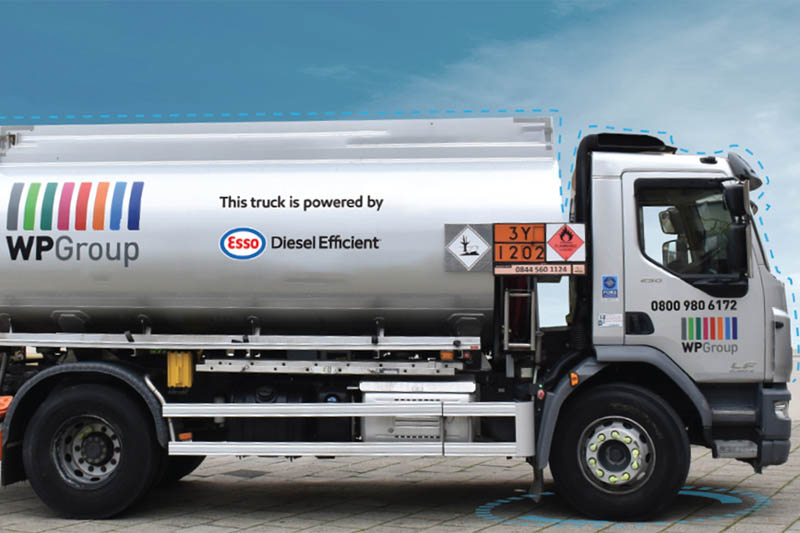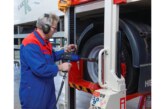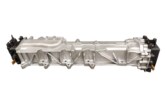
WP Group explores practical options for more sustainable fuel use in your business.
Without a doubt, the quest for ever-increasing levels of sustainability is driving change and shaping the world around us. Right now, we have to look for practical measures which utilise the available fuel technologies and take one step closer to a greener world.
However, being more sustainable doesn’t necessarily just mean changing the fuel you put into your vehicle, it could simply be finding ways to be more efficient in how you use and refuel your vehicles.
Using an additised diesel effectively could be the first step you take towards a more sustainable fuel solution. For example, Esso Diesel Efficient fuel has been shown to reduce particulate matter and CO2 emissions, the fuel formulation keeps fuel injector systems cleaner, which helps to protect the fuel system, improves fuel economy, and reduces maintenance downtime.
Southampton-based fuels distributor WP Group is an example of one firm that is switching its own fleet to run on the Esso Diesel Efficient fuel. It’s all part of the business’ commitment to operating in a more sustainable way and helping its customers to do the same, or “fuelling change” to use the WP Group’s own terminology.
Mark Clouter, Business Development Sales Manager, explains: “We recognise that our position as a supplier of diesel products, in today’s market, requires continual business evolution. This allows us to support the increasingly demanding requirements our customers are faced with when working to achieve their business objectives.
“Our switch to using the Esso Diesel Efficient fuel in our own fleet is part of our commitment to demonstrating how a more sustainable approach to fuel use can provide practical benefits, both commercially and environmentally. It’s a small step but a logical and significant one towards fuelling change.”
Biofuels are increasingly becoming a very real alternative to ISO standard fuels and could already be the practical answer many are looking for. Hydrotreated Vegetable Oil (HVO) is a fossil-free, low carbon drop-in diesel replacement product made from 100% renewable waste, residues, and vegetable oils.
Reducing greenhouse gas emissions by up to 90% in addition to sizeable reductions in tailpipe emissions. Drop-in diesel replacements, such as HVO, are easy to implement into your vehicles, as they require no engine or plant modifications.
A practical and easily implemented option, which enables you to continue using ISO standard fuels but fulfil your sustainability objectives, is to utilise WP Group’s carbon compensation product.
This works by WP Group investing in a project on your behalf to purchase the required number of carbon units to offset the carbon created by the volume of fuel you use. The units are then retired, and you are provided with a full confirmation pack with all relevant documentation and certification relating to their carbon compensation.
Sustainability does not necessarily only have to come from the fuels you put in your tank, it can also be in how the fuel is put in. For example, the use of mobile refuelling means your vehicles are making fewer trips to the pump, saving you time, money, and carbon emissions. WP Group works towards its customers’ sustainability objectives by ensuring all its fuels are available for delivery or collection, and that its fuel management system can record all product transactions.
Reducing your carbon footprint may simply be a case of re-evaluating your fuel efficiency and ensuring that you are maximising any potential savings. Monitoring the fuel efficiency of your vehicles could be one of the most practical and effective measures you take to minimise your pollution levels.
WP Group uses intelligent data and technology to provide you with real-time traceability and transparency for all your fuel transactions, tracking the journey of every litre, providing quick, simple, and easy reporting on your fuel consumption, spend, and total carbon emissions.








